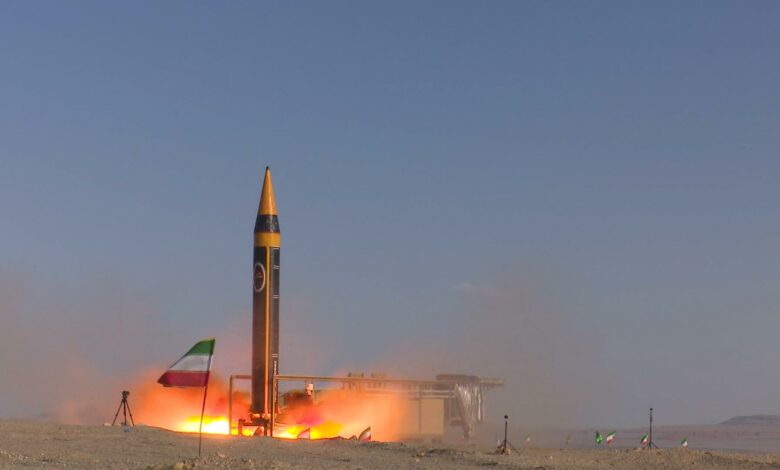“Site 512,” A Top Secret US Military Base In Israel’s Desert to Monitor Iranian Missile Launches
The primary function of the military base known as "Site 512" is to operate a long-range radar facility for the United States. This long-range radar facility is tasked with monitoring any ballistic missile launches by Iran or its proxy groups against Israel and other US allies in the Middle East.
(DEFENCE SECURITY ASIA) — Located atop Mount Har Qeren in Israel’s Negev Desert, lies a top secret United States military facility, known only to defense observers as “Site 512,” located approximately 20 miles from the Gaza Strip.
The primary function of this base, “Site 512,” is to operate a long-range American radar system and safeguard the safety of its main ally in Middle East, Israel.
This system is designed to monitor any ballistic missile launches by Iran or its proxy groups against Israel and other allies in the Middle East.
In recent months, this long-range radar facility has been actively assisting Washington and Tel Aviv in detecting Iranian ballistic missiles aimed at Israel.
The main objective of “Site 512” is to track ballistic missile threats; however, it is not equipped to monitor the thousands of rockets launched by Palestinian militants against Israel.

The facility is equipped with the AN/TPY-2 radar, developed by the prominent defense company RTX (formerly known as Raytheon), in conjunction with the Terminal High Altitude Area Defense (THAAD) anti-ballistic missile system.
Capable of detecting targets from 540 miles to nearly 1,860 miles away, the AN/TPY-2 radar is among the most powerful on the market for tracking ballistic missiles.
Specifically developed to detect and track short, medium, and long-range ballistic missiles, the radar operates in the X-Band of the electromagnetic spectrum, which allows for clearer target visibility.
According to the manufacturer of the radar, the AN/TPY-2 has an excellent track record against all types of ballistic missiles, whether newly launched or in descent toward their targets.
The radar can operate in both Forward-based Mode and Terminal Mode.


The United States has been deploying the AN/TPY-2 radar since 2004, and as of 2021, it is believed to have up to 12 such units, with several stationed in the Middle East.
Months before the recent escalation in the Israeli-Palestinian conflict, the U.S. Army allocated $32 million (equivalent to approximately RM153 million) to construct additional housing facilities for its troops stationed at this secret military site.
This likely indicates efforts to increase the presence of U.S. military personnel at “Site 512” and to expand its long-range radar capabilities in Israel.
There is also a potential plan to add about 1,000 U.S. troops to “Site 512”, as reported the country media several months ago. — DSA



Comments are closed.